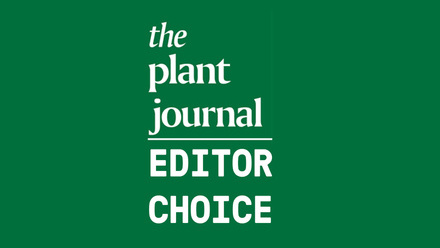The Singh lab is embarking on an exciting journey: Come join the team
The Singh lab is embarking on an exciting journey, come work with us!

We are building a team to conduct research for the 4+3 years of UKRI- funded Future Leaders Fellowship (FLF) project, ‘REVOLUTION: Unravelling the regulation and evolutionary innovations in grass species to engineer high water use efficiency in rice,’ led by Pallavi Singh at School of Life Sciences, University of Essex, United Kingdom.
Background: Rice serves as a global staple crop for more than 3.5 billion people, grown in over 100 countries, and provides nearly half of the global caloric intake. It is vital for food security, particularly in South Asia, where it supplies a significant portion of both caloric and protein needs. Furthermore, the demand for rice in Africa is growing at more than 6% annually (Source: AfricaRice). Currently, the global rice market is expected to face its largest shortfall in two decades, driven by a changing climate and dwindling freshwater reserves. Rice is a water-intensive crop, and water is central to the global climate crisis. Therefore, developing rice varieties with improved water use efficiency is crucial for ensuring agricultural sustainability and global food security.
Let the REVOLUTION begin!
The FLF aims to provide new insights into the holistic understanding of water use in rice, generating rice varieties with enhanced water use traits. By integrating novel germplasms with publicly available breeding and pre-breeding resources, this FLF project ensures the swift adoption of promising results, reducing the time needed to achieve significant impacts. Further, these varieties will be incorporated into novel rice breeding programs to ensure maximum impact and pave the way toward a sustainable future in the face of climate change. Moreover, collaboration with project partners in the UK, India, France, Germany, and the Philippines will facilitate work with farmer communities on the socioeconomic consequences of unstable rice production in Southeast Asia.
The project will also benefit from the new £3.5 million STEPS facility at Essex, which includes controlled environment suites and an indoor field with advanced phenotyping capabilities for testing rice. This position offers a unique opportunity for a highly motivated research assistant to join us in future-proofing rice and advancing agricultural sustainability. The project will also benefit from the Microscopy Suite in the School of Life Sciences which recently got a >£1M upgrade.
The successful candidate will be joining a vibrant and friendly group of researchers in the Singh Lab, a multidisciplinary research group focused on developing water-efficient crops for the future. We strive for an equal, diverse and inclusive environment and care for your wellbeing.
Please consult our core values and other information at (https://www.thepallavisinghlab.com/about-5-1).
We are seeking candidates with a strong interest in plant productivity and photosynthesis, along with knowledge of plant molecular biology and plant physiology. Candidates should have excellent communication skills and the ability to work independently, as well as collaboratively with other members of our research group. All positions are available immediately and are funded for an initial period of 36 months.
Informal enquiries may be made to Pallavi Singh (e-mail: [email protected]). However, all applications must be made online.
Research Assistant
We are seeking a Research Assistant to deliver the research objectives defined by the UKRI-FLF grant project which broadly involves using physiological, biochemical, and omics approaches to harness new information from a diverse subset of Asian and African rice cultivars, in order to identify the best targets for manipulation to enhance water use efficiency. The Research Assistant will develop protocols, troubleshoot techniques, and deliver projects supporting the FLF team in DNA construct assembly and plant genotyping. Will generate, maintain and characterise grafted and transgenic plants. Will provide molecular and physiological support to the FLF team, contribute to at least two research manuscripts, and develop skills in data analysis, project management, and independent research.
Salary: £29,605 per annum
Duration: This post is fixed-term, full-time for 3 years in the first instance, with renewal potential, subject to continued funding, currently until end of 2028
How to apply (application link and job-pack):
Apply by: November 3, 2024
Post-doctoral Research Associate 1
The PDRA1 will lead the phenomics and genomics efforts of the FLF project. Will deliver the specific overarching aim of the FLF project: to use molecular, physiological, histological, biochemical, and omics approaches to leverage new insights from Asian and African rice cultivars with varying photosynthetic capacities, in order to improve the precision of computational predictions and identify the optimal target combinations for enhancing water use efficiency. PDRA1 will also be tasked with preparing and submitting at least two distinct manuscripts arising from this research.
The successful candidate will have a unique opportunity to contribute and get experience in the development of group, mentoring, in grant writing, as well as driving and being directly involved in multiple projects and research articles. While this position is fully funded, successful postdoctoral candidates who have previously joined the Plant Productivity Group have successfully competed for and obtained their own postdoctoral fellowships (e.g., Marie Curie, Human Frontiers, EMBO, etc.). This role will place you in a strong position to compete for and apply to similar prestigious postdoctoral fellowships.
Salary: £37,099 per annum
Duration: This post is fixed-term, full-time for 3 years in the first instance, with renewal potential, subject to continued funding, currently until end of 2028
How to apply (application link and job-pack):
Apply by: November 5, 2024
Post-doctoral Research Associate 2
The PDRA2 will lead the transcriptome analysis and generate gene regulatory network efforts of the FLF project. Will deliver the specific overarching aim of the FLF project: to use molecular, bioinformatics and single-cell omics approaches to leverage new insights from Asian and African rice cultivars with varying photosynthetic capacities, in order to identify the master regulators and optimal target combinations for enhancing water use efficiency. PDRA2 will also be tasked with preparing and submitting at least two distinct manuscripts arising from this research.
The successful candidate will have a unique opportunity to contribute and get experience in the development of group, mentoring, in grant writing, as well as driving and being directly involved in multiple projects and research articles. While this position is fully funded, successful postdoctoral candidates who have previously joined the Plant Productivity Group have successfully competed for and obtained their own postdoctoral fellowships (e.g., Marie Curie, Human Frontiers, EMBO, etc.). This role will place you in a strong position to compete for and apply to similar prestigious postdoctoral fellowships.
Salary: £37,099 per annum
Duration: This post is fixed-term, full-time for 3 years in the first instance, with renewal potential, subject to continued funding, currently until end of 2028.
How to apply (application link and job-pack):
Apply by: November 5, 2024
Fully funded PhD studentship
How to apply: Email explaining your interest in the project to Pallavi Singh ([email protected]). Please include (a) CV (b) Research Statement with a description of research experiences and motivation (c) Contact information of three references before 15 January 2025. Please mention FLF- PhD in the email subject. Project start date will be October 2025.
Applicants to this studentship should normally have an Undergraduate degree of 2:1 or above (or international equivalent) in a relevant subject area. A Master’s degree is desirable, but not essential. The degree and courses should be related to plant biology, molecular biology, cell biology or related. Prior experience with genetics, plants, transcriptomics, microscopy and molecular biology are assets. Candidates should also have an ability to conduct independent research, take initiative, ask pertinent scientific questions, and interact well with other scientists and students. Creativity, motivation and drive are important personal characteristics.
The minimum English language entry requirement for postgraduate research study in the School of Life Sciences is an IELTS of 6.0 overall with at least 5.5 in each component (reading, writing, listening and speaking) or equivalent. The test must be dated within two years of the start date of the course in order to be valid.
You will then need to follow the application process that is defined by the University of Essex.





